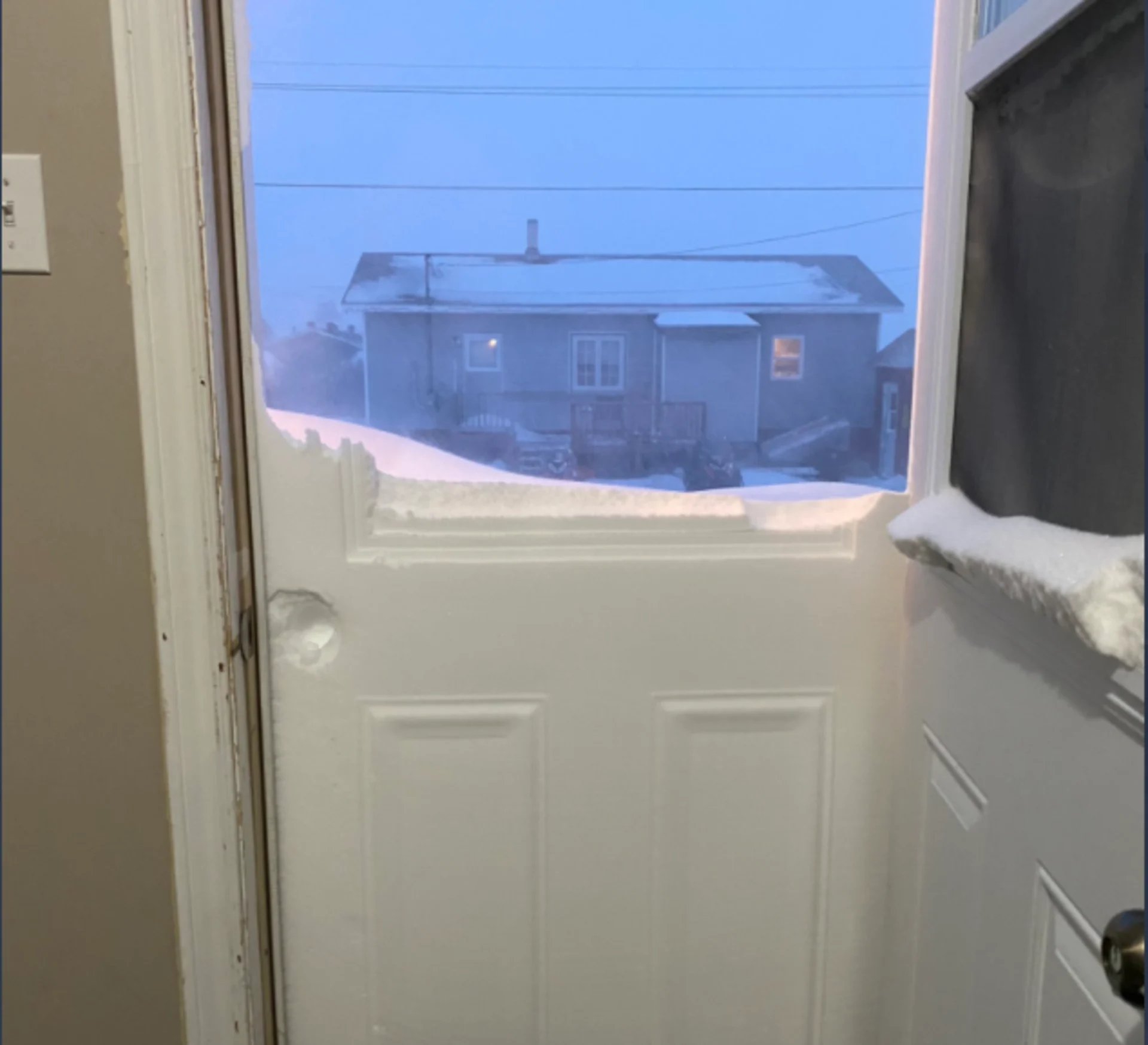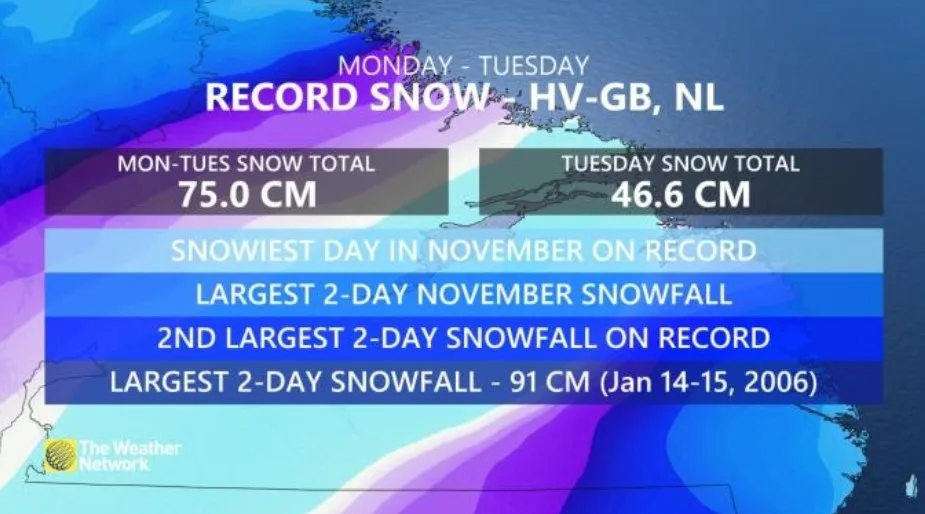
In November 2020, this Canadian city out-snowed yearly totals in one month
In November 2020, Happy Valley-Goose Bay, N.L., recorded 88 cm of snow in just 48 hours, setting a monthly record.
This Day In Weather History is a daily podcast by Chris Mei from The Weather Network, featuring stories about people, communities and events and how weather impacted them.
--
Between Nov.23 and Nov. 24, 2020, Happy Valley-Goose Bay, N.L, received 75 cm of snow. The town was slammed with almost 2.5 feet (0.76 metres) of snowfall, which is more snow than several major Canadian cities' annual totals.
The record-breaking storm was courtesy of "an intensifying, low-pressure system tracking just south of the town, the absolute perfect track to maximize snowfall potential and squeeze every last snowflake out of the atmosphere," says The Weather Network meteorologist Tyler Hamilton.

"A strong jet stream aloft provided added support in the atmosphere, further strengthening the low. The moisture content of the low was then boosted by a bountiful moisture source drawn up from the Atlantic Ocean."
The Labrador snow was relentless, at one point falling at a rate of 5-10 cm an hour. The snowfall was accompanied by wind gusts as high as 90 km/h, prompting Environment and Climate Change Canada (ECCC) to issue blizzard warnings.
"Blizzard warnings are issued when widespread reduced visibilities of 400 metres or less are expected for at least 4 hours," said EC in the warning.
The Happy Valley-Goose Bay snow totals broke several records, including the snowiest day in November history. The storm didn't quite break the highest, two-day total of all time––a 91 cm snowfall from Jan. 14-15, 2006.
To learn more about the record-breaking Labrador snowfall, listen to today's episode of "This Day in Weather History."
Subscribe to 'This Day in Weather History': Apple Podcasts | Amazon Alexa | Google Assistant | Spotify | Google Podcasts | iHeartRadio | Overcast'










